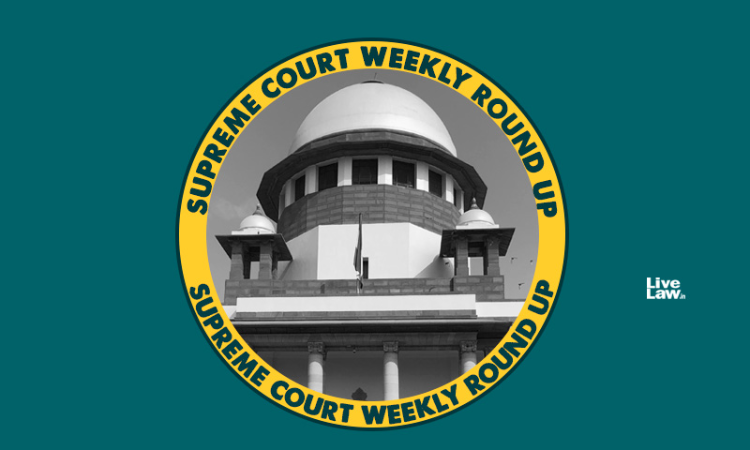- Home
- /
- Top Stories
- /
- Supreme Court Weekly Round-Up
Supreme Court Weekly Round-Up
Arabhi Anandan
27 Jan 2020 9:16 AM IST
Electoral Bonds: SC Gives Two Weeks Time To Election Commission To Reply [Association for Democratic Reforms & Anr. v. Union of India Cabinet Secretary & Ors.] The Supreme Court declined to grant an immediate stay on the 2018 Electoral Bonds Scheme ahead of the Delhi Assembly polls, granting the Election Commission two weeks' time to reply. "A stay was not given by this...
Next Story



